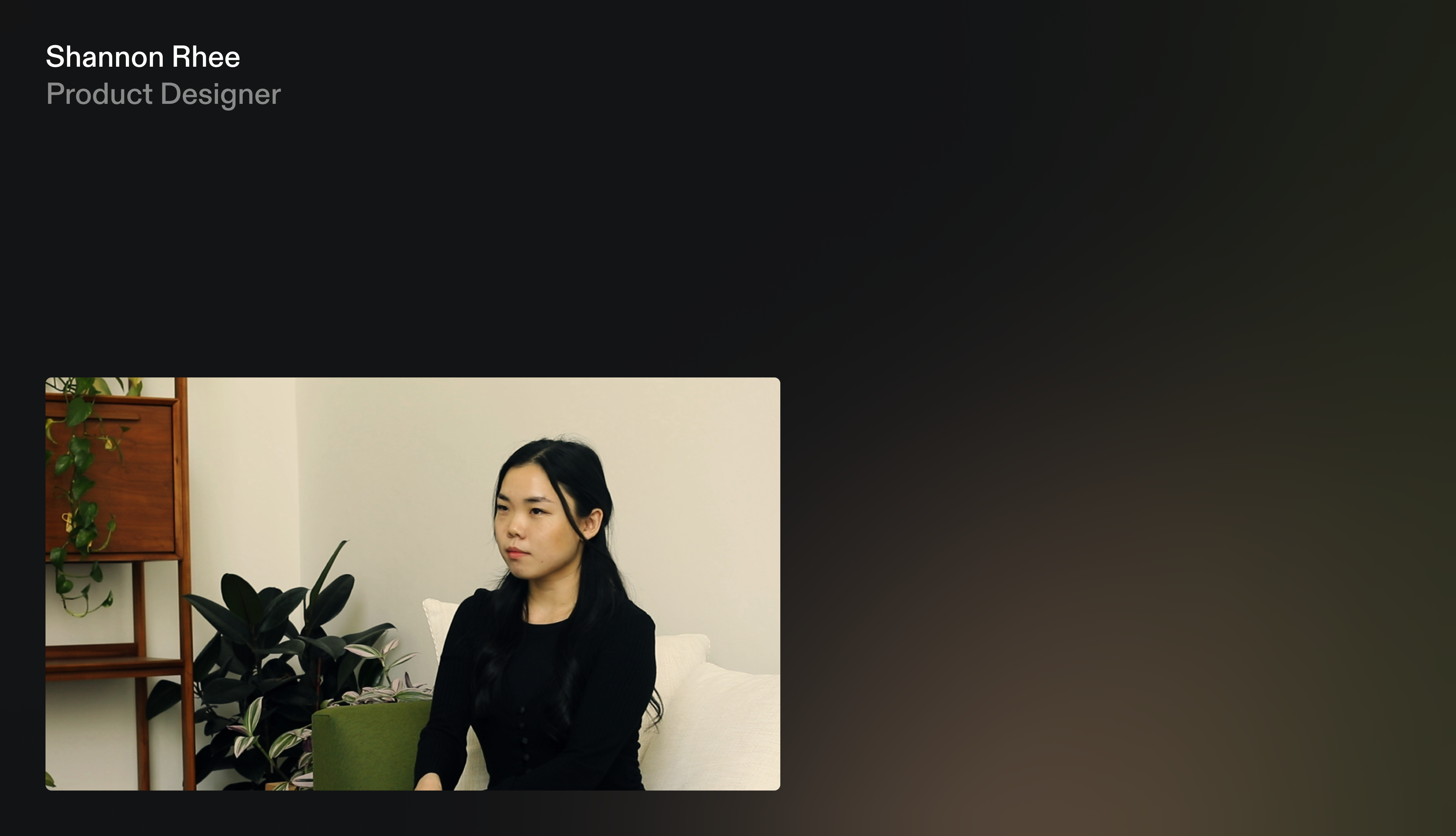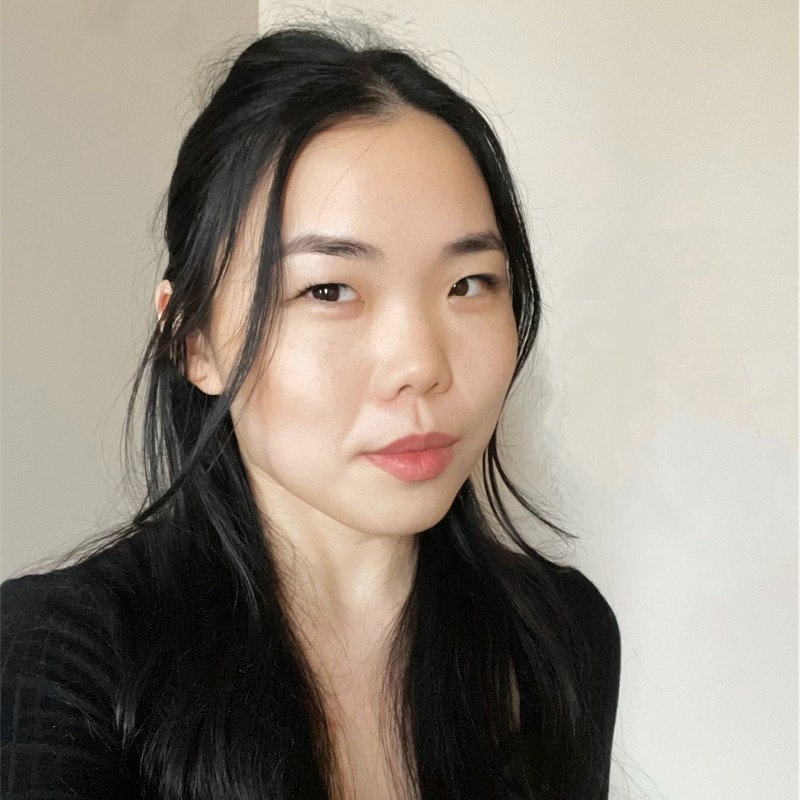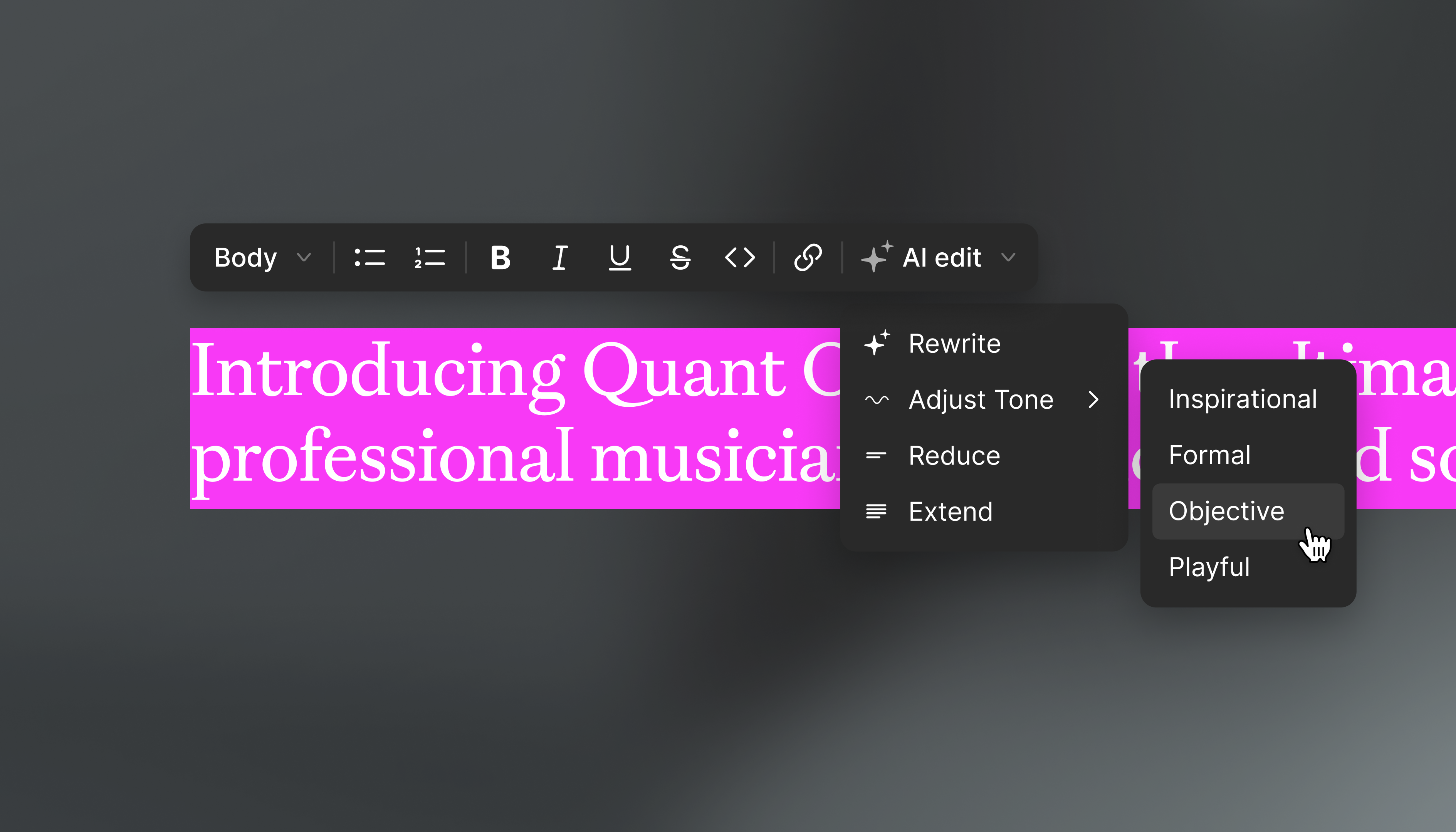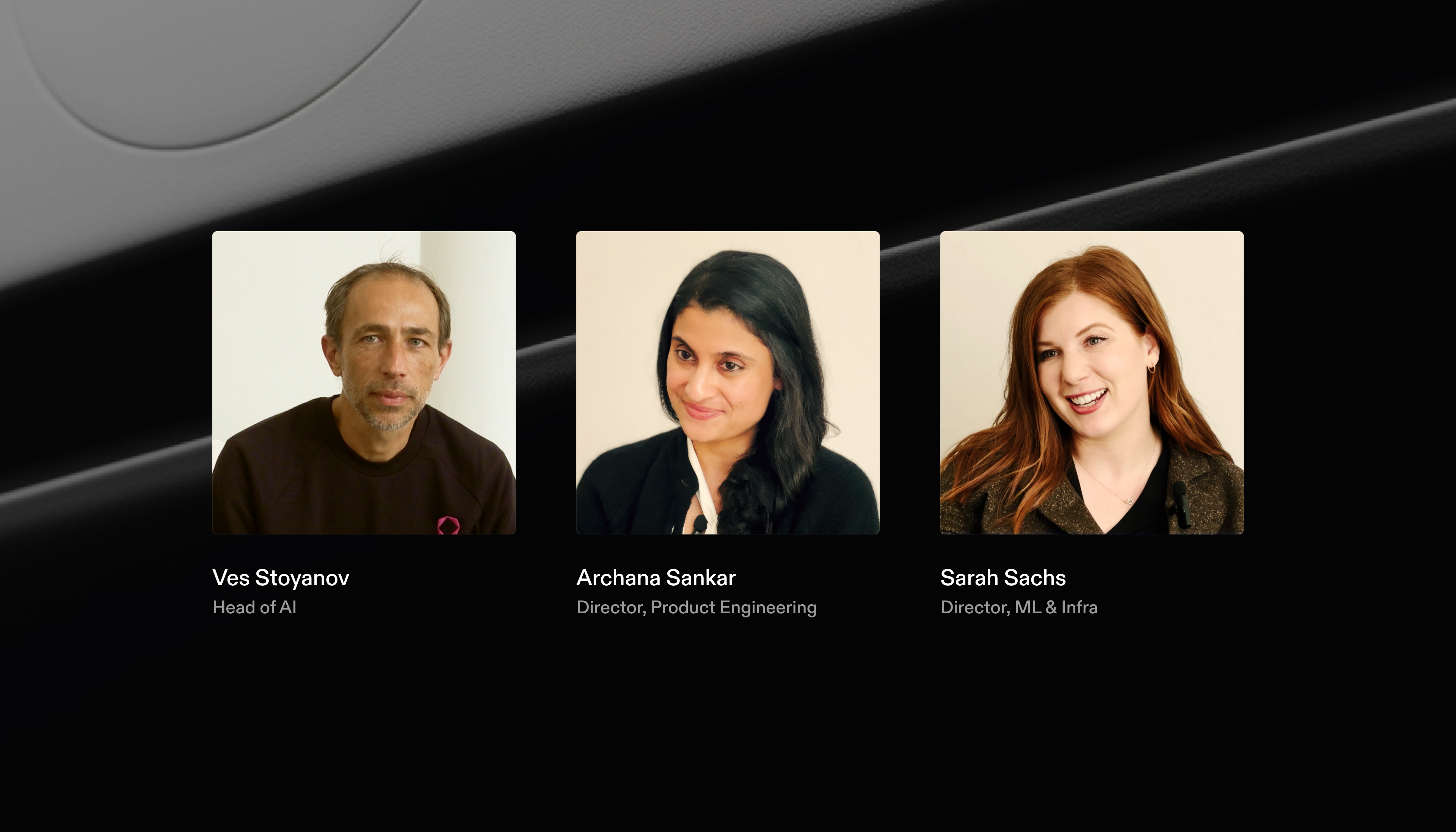Behind the page
A Tome Product Designer Navigates Building with AI's Infinite Possibilities

Imagine a design environment where there are no defined rules to follow and infinite experimentation is encouraged. This is the space in which Tome’s product design team works as they build a new kind of presentation experience with AI for millions of professionals around the world.
Product designer at Tome, Shannon Rhee, shares her thoughts on designing a novel AI product for the workplace where large language models (LLMs) are taught to generate endless types of outputs, and how to navigate a design world with infinite possibilities.
Tome: From a design standpoint, what’s been most challenging, or surprising to you, when working with LLMs?
Shannon Rhee: When you’re designing for a nondeterministic system, you have to relinquish some level of control and precision that you’d otherwise have with traditional product design—how do you teach an LLM what a good layout looks like, what typographic rules exist, and what best practices to adhere to?
These are not easy questions to answer and are exciting challenges that the Tome design team are tackling on a daily basis.
Tome: As a product designer, how is AI changing the way you work?
Rhee: It’s not only changing the way we work with AI, it’s also changing how we build AI. In terms of visual and product design, it’s all about how we build the software and also think about the visual and experiential aspects of Tome specifically. What do the interactions between the UI and the UX look like?
“There’s a certain element of surprise that you learn to get more comfortable with as a designer when working with AI. It’s like adding a bumper to lanes in a bowling alley; you put in guardrails to help guide the LLM for better outcomes.”


We think about collaboration in terms of understanding what’s possible and how it transforms Tome’s product. There’s a level of serendipity that we constantly deal with, because with AI, you’re never 100% sure of the outputs you’ll get. But that’s also liberating and where the innovation comes in.
Tome: What are some specific things that you and the team keep top of mind when it comes to weaving in principles of design with AI?
Rhee: There’s a certain element of surprise that you learn to get more comfortable with as a designer when working with AI. We’re guiding the LLM to generate dynamic layouts by teaching it the purpose of specific layout types.
Designing for AI requires acknowledging that the way a user engages with the product can yield significantly diverse outcomes — we have to embrace and design for flexibility. We analyze why things might be happening and make small adjustments and then we iterate and evaluate over and over again.
We’re playing with optionality and the levers we have to control the output—It’s like adding a bumper to lanes in a bowling alley; you put in guardrails and provide instructions to guide it.
Tome: Anything you’re most inspired by when it comes to AI and design at Tome?
Rhee: It's a fun time to look for inspiration in AI products today. Because the space is evolving so quickly, design paradigms have yet to be established in a formal way. We’re seeing new workflows for AI actions and existing patterns being re-purposed for new interactions.
The excitement of being a part of Tome’s design team stems from our persistent, design-centric engagement in machine learning experimentation. As a product design team, we’re constantly evolving our thinking and approach as the space matures.
Meet Shannon below:
For more on how Tome is pushing the limits with AI and machine learning, check out a conversation with our engineering leaders on the Blog.
Bookmark the Changelog to get the latest in product news and features, and as always—drop us a line at team@tome.app. We’d love to hear from you.
You may also like...

Three popular ways to use AI in sales training, including materials creation, role-playing, and personalized coaching.

Sit in on a conversation between our engineering leaders for their insights on how they’re moving the AI needle at Tome.